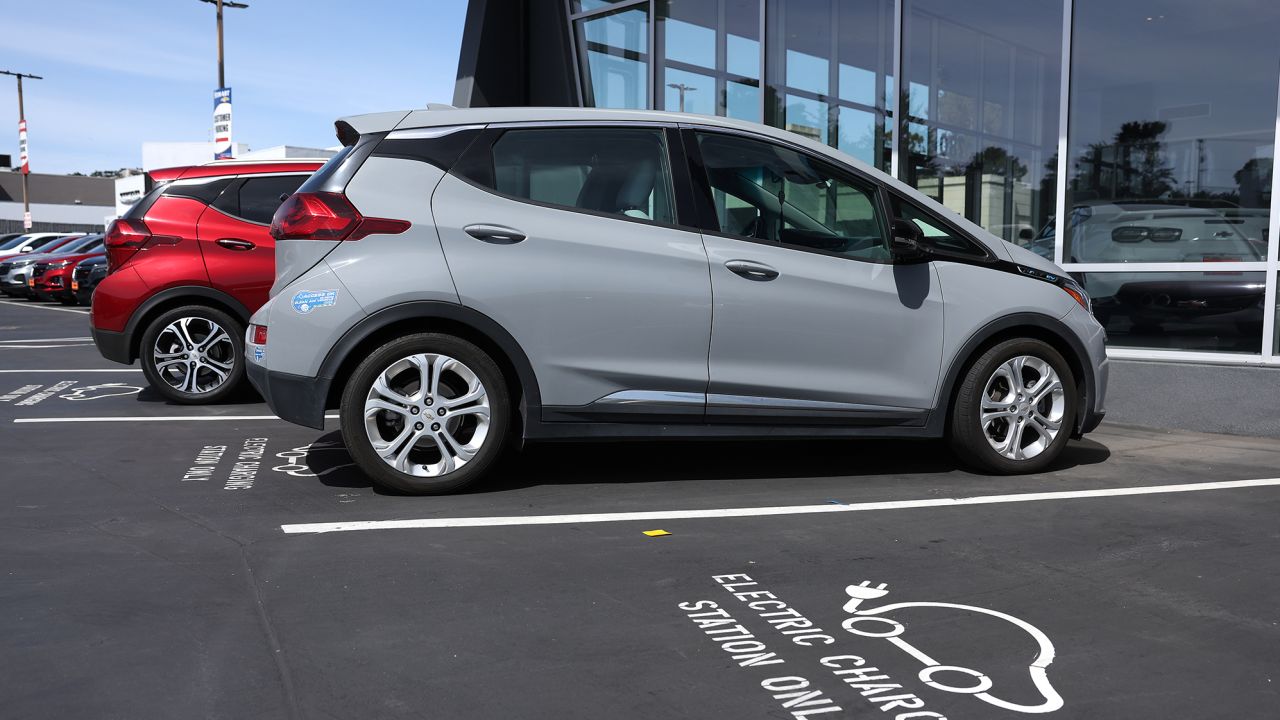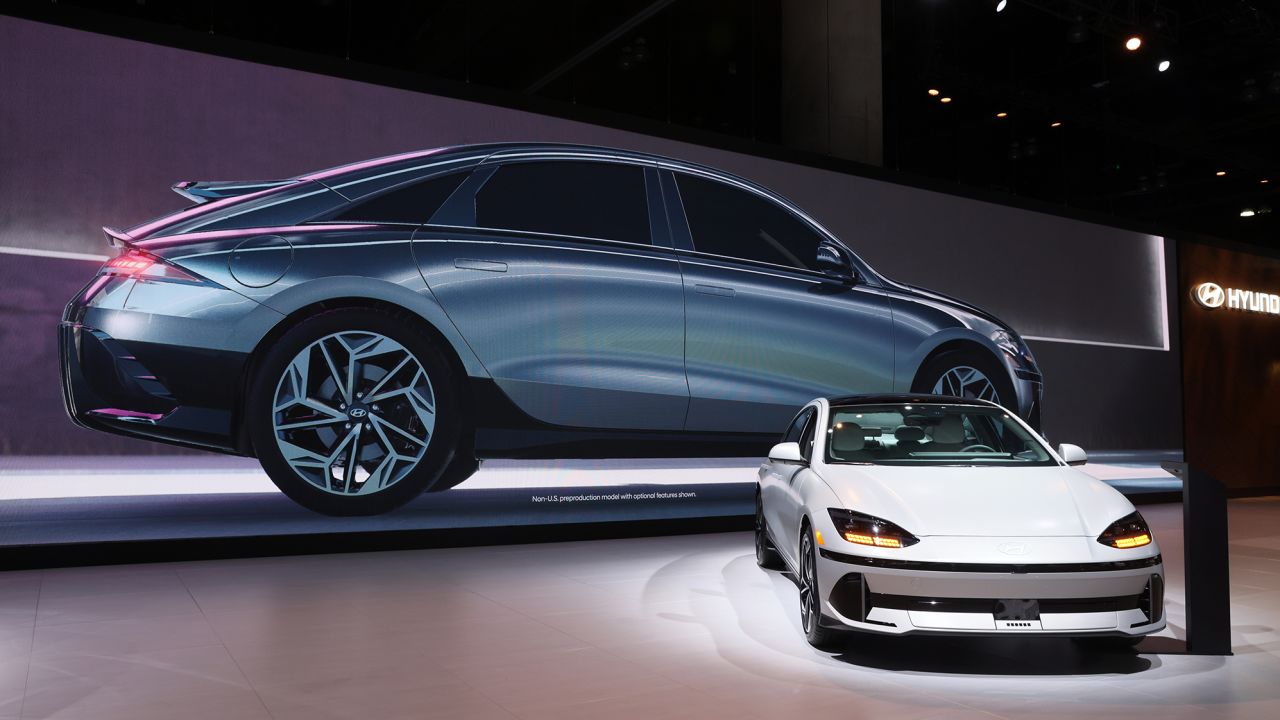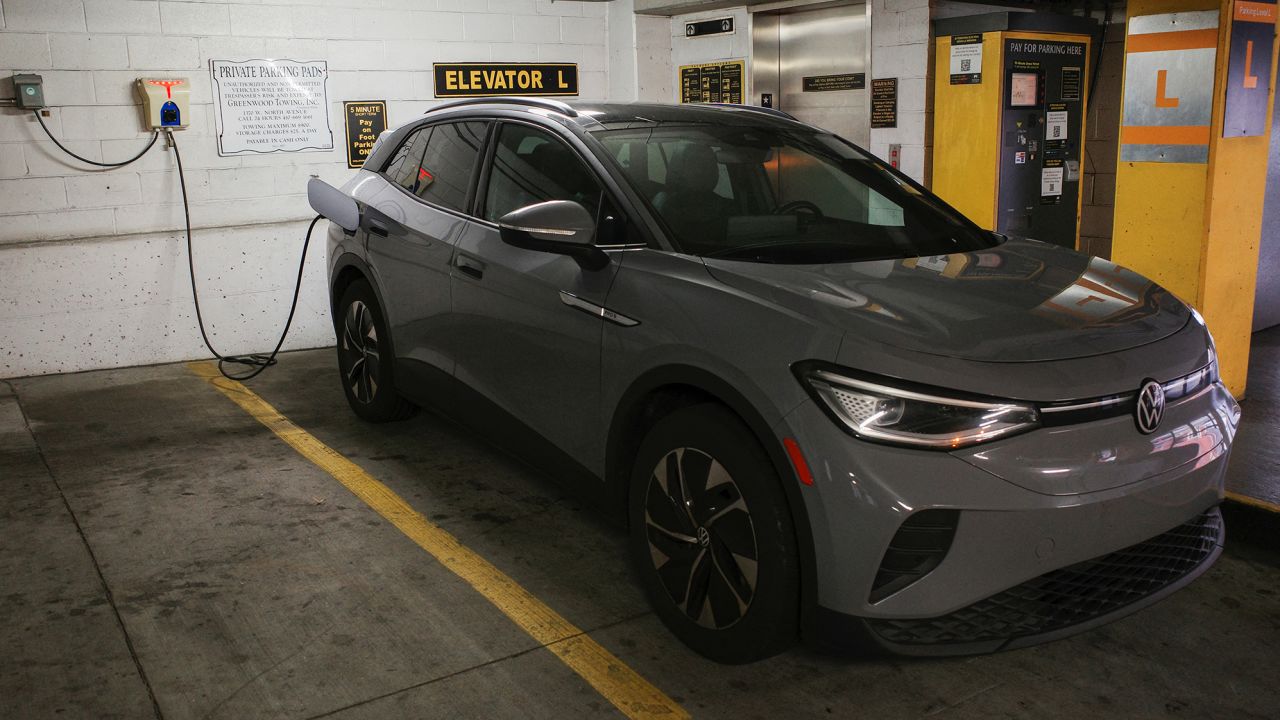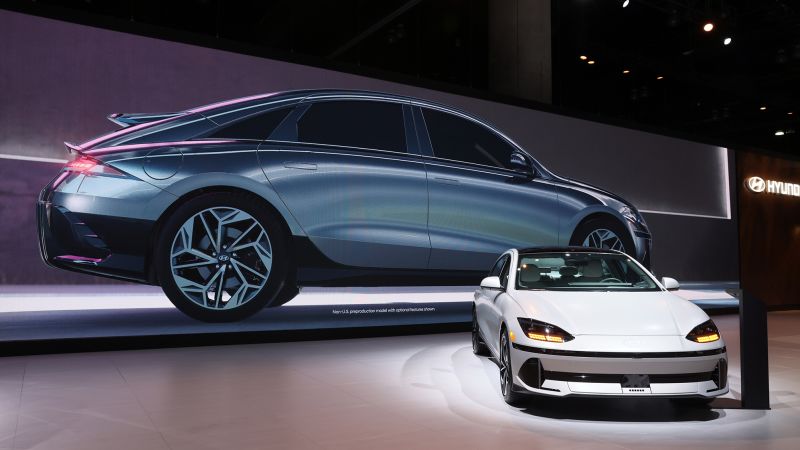Thanks to a combination of new models, more production and new tax laws, electric vehicles are no longer just for the wealthy.
While the average sale price of a new vehicle – gasoline or electric – hovers around $48,000, automakers like General Motors, Ford, Hyundai, Kia and Volkswagen have all introduced a variety of electric vehicles that come in significantly below that figure.
Plus, there are ways for car shoppers to take advantage of tax credits on electric vehicles without having to worry about arcane rules around battery sourcing and limits on the buyer’s personal income.
All of which means that you can now find a relatively cheap EV, whether you’re planning to lease or buy.
Due to a quirk in America’s tax laws, if the vehicle is being leased, rather than purchased, the full $7,500 tax credit can be used for most new electric vehicles. The vehicle doesn’t have to be built in the US, nor do the batteries.
The difference is the tax credit goes to the leasing company – which is, really, the “purchaser” of the vehicle – not to the person who has the vehicle in their driveway. Because it’s been purchased by a company, any car you lease is a “commercial vehicle” and gets the benefit of more lax tax rules for commercial vehicle purchases, explained Mark Luxcombe, principal analyst with the tax and accounting firm Wolters Kluwer.
The credit can then be passed along in the form of lower lease payments, so the consumer still gets the benefit.
“There’s still some restrictions on the the cost of the vehicle and that sort of thing, but you don’t have the income restrictions, you don’t have some of the battery and sourcing restrictions,” Luxcombe said.
More models being offered has led to a glut of available electric vehicles, according to an analysis by Cox Automotive. Currently the “days supply” of electric vehicles – a measure of the number units on dealer lots relative to how quickly they sell – is now twice that of new vehicles overall. That’s not because electric vehicles are selling poorly, said Brian Moody, executive editor at Autotrader, but because carmakers are introducing more new models while production of vehicles of all sorts is increasing.
This is still a relatively new phenomenon, said Moody, but already there are some purchase incentives and even pricing adjustments, like Ford dropping the price of the F-150 Lightning. Bargaining power could be shifting to the buyer’s side.
“There’s a good chance that, if you really want an electric car, depending on the model, [the price] may not just be set in stone the way it was, say, two years ago,” said Moody.
The biggest bargain among electric vehicles currently, whether you lease or buy, happens to be one that’s going away soon. The Chevrolet Bolt EV and the very similar Bolt EUV, a slightly taller, more SUV-ish version, will go out of production by the end of 2023 after what is expected to be their best sales year ever. Because the Bolt is made in America, and so are its batteries, buyers can get a $7,500 credit regardless of whether they buy or lease. With a starting price of just $26,500 before the credit, the Bolt EV is relatively cheap for any sort of new vehicle, electric or not.

For a total price that could come in under $20,000, you get an EV that’s practical and, belying its techno-dorky appearance, even kind of fun to drive.
The only real downside to the Bolt compared to its competitors is a rather slow maximum charging speed. While some other electric vehicles can charge from 10% to 80% in just 20 minutes or so at a fast charger, the Bolt takes much longer. And at least, while you’re waiting, you can think about all the money you saved. The current version of the Bolt is going out of production later this year, but GM has already announced that a new version, with new battery technology – and, presumably, faster charging – will be available before too long.
If you want fast charging, Hyundai and Kia have solid options
These Korean brands – both are part of the Hyundai Motor Group – have quietly turned into electric vehicle powerhouses over the past few years. Hyundai won the Car and Driver’s EV of the Year Award two years in a row with sequentially numbered models, the Ioniq 5 and Ioniq 6.
Although they don’t look it, both the blocky Ioniq 5 and the curvy Ionig 6 share a lot of their engineering with the wedge-shaped Kia EV6. All have sticker prices around $43,000 and they also have electrical systems enabling among the fastest charging speeds available. Also, they have long driving ranges. The Kia EV6 can go up to 310 miles on a full battery and the Hyundai Ioniq 6 as far as 361 miles.

“Usually, you’re in the premium brand sphere to get that kind of range,” said Tony Quiroga, editor-in-chief of Car and Driver.
For almost $10,000 less, in terms of sticker price, Hyundai offers the soon-to-be redesigned Kona Electric. It’s not as sharp-looking as its newer relations and doesn’t charge as fast – though still faster than the Bolt – but it’s practical, drives nicely and, at $34,000 before that tax credit, it’s a bargain. That low price, with the tax credit, can translate to a monthly lease in the $400 range or less if you trade in a vehicle or make a down payment, a “capitalized cost reduction” or “cap cost reduction,” in leasing lingo, according to Edmunds.com’s lease calculator.

The Volkswagen ID.4 is another strong contender at a relatively low price. Some critics don’t like some of its fussy controls, but it’s attractive and pleasant to drive. Quiroga prefers the all-wheel-drive version, which has more power thanks to its two electric motors. With a sticker price starting around $40,000, it’s eligible for the full $7,500 tax credit whether leased or purchased.
The only challenge for these vehicles is that, for now, the Chevrolet Bolt still exists, said Quiroga. If you don’t mind waiting a while to charge but you’re ready to go electric, it’s just a hard deal to beat.
Read the full article here















